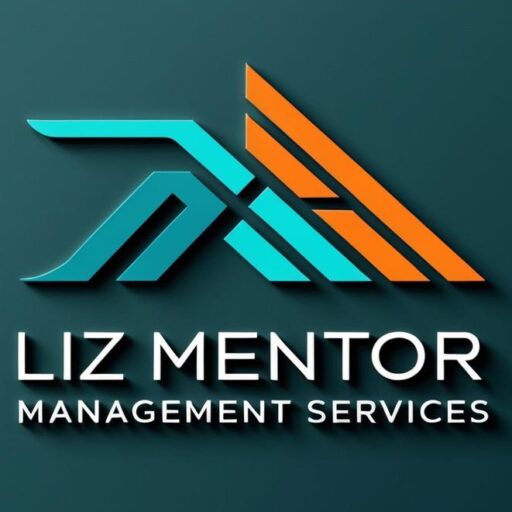Closing – Mastering the Art of the Call’s Final Moments
In the world of call centers, the way a conversation ends is just as important as how it begins. Module 11, Closing, focuses on the strategies and techniques required to finish calls effectively. A strong closing leaves customers feeling valued, confident, and satisfied. Whether it’s finalizing a sale, resolving a service issue, or confirming details, the close of a call can make the difference between a one-time interaction and a long-term relationship.
Why Closing Matters in Call Centers
Closing is often misunderstood as merely saying goodbye. In reality, it’s the moment where an agent ensures the customer’s needs have been met, reinforces the value of the interaction, and sets the stage for future engagement. A poorly handled close can leave customers confused, frustrated, or uncertain, negating the progress of the entire conversation.
Key objectives of an effective closing include:
Confirming that all customer questions have been answered.
Ensuring next steps are clear, whether it’s delivery, follow-up, or service resolution.
Reinforcing a positive customer experience that encourages loyalty.
Ending the interaction professionally and confidently.
Closing is not just procedural; it’s a strategic opportunity to strengthen the relationship and leave a lasting impression.
Knowing When It’s Time to Close
One of the most critical aspects of closing is timing. Closing too early can leave the customer feeling rushed, while delaying the close can prolong the call unnecessarily. Successful call center agents learn to read verbal and non-verbal cues, such as:
The customer summarizing their needs or expressing satisfaction.
A lack of further questions or concerns.
Positive affirmation or agreement to proposed solutions.
Recognizing these cues allows the agent to transition naturally into the closing phase, making it feel seamless and unforced.
Closing Techniques That Work
There are several proven techniques that call center agents can use to close conversations effectively:
Recap and Confirm: Summarize the key points of the conversation to ensure understanding and alignment. For example: “To confirm, we’ve scheduled your delivery for Thursday, and you’ll receive a confirmation email today.”
Next Steps: Clearly outline what the customer should expect next. This reduces uncertainty and builds trust. For instance: “Our technician will contact you before noon tomorrow to finalize the setup.”
Express Appreciation: Thanking the customer reinforces a positive experience. Simple statements like “We appreciate your time and feedback” go a long way in making customers feel valued.
Seek Feedback: Inviting customers to provide input encourages engagement and shows that their opinion matters. Questions like “Was this call helpful today?” demonstrate attentiveness and openness to improvement.
Relationship Reinforcement: Closing is also a chance to remind the customer of ongoing support and company value. Statements like “Remember, our support team is available 24/7 for any future needs” maintain a sense of continuity and reliability.
By combining these techniques, agents create a closing that is professional, reassuring, and memorable.
Maintaining the Relationship Beyond the Call
A strong close doesn’t end with the final words spoken on the line. It’s about leaving the customer with confidence in the company and its services. Effective closings often include:
Providing additional resources, such as helpful links, guides, or contact numbers.
Setting expectations for follow-up communications.
Offering invitations for future interactions or loyalty programs.
By maintaining this forward-looking perspective, agents ensure that each call contributes to long-term customer relationships rather than being a single transactional encounter.
After the Sale or Resolution
In sales or service calls, the closing phase often includes finalizing agreements or confirming resolutions. Effective agents:
Clearly articulate the agreed-upon solution or product.
Verify that the customer understands and accepts any terms or conditions.
Document relevant details for internal tracking and follow-up.
Proper documentation ensures continuity across future interactions and prevents miscommunication. For example, if a follow-up is required, noting the agreed date and time allows the next agent or team member to provide seamless support.
Handling Objections at the Close
Even at the final moments, customers may present objections or concerns. Skilled agents address these calmly, without derailing the closing process. Techniques include:
Acknowledgment: Show understanding of the concern. “I understand why that may be worrying.”
Reassurance: Offer a solution or alternative. “We can schedule an extra check to ensure everything works as expected.”
Confirmation: Reiterate the agreed-upon plan and seek affirmation. “So we’re aligned on the delivery for Thursday—is that correct?”
Handling objections effectively ensures that the close strengthens rather than weakens the customer relationship.
Psychological Aspects of a Strong Close
Closing a call successfully also taps into psychological cues. People respond positively to clarity, appreciation, and certainty. A confident, friendly tone signals professionalism and competence. Pausing briefly before ending the call gives the customer a sense of closure, rather than leaving them feeling hurried or rushed.
A well-timed smile, even over the phone, can influence tone and energy, making the interaction feel warmer and more human. These subtle elements significantly enhance the perception of service quality.
Training Agents for Effective Closings
To ensure consistent and high-quality closings, call centers often implement targeted training. This includes:
Role-playing scenarios to practice different types of closings.
Recording and reviewing calls to identify strengths and areas for improvement.
Sharing best practices and examples of exemplary closings.
Continuous coaching to refine timing, tone, and phrasing.
Training ensures that agents are confident in their ability to close calls successfully, reducing stress and improving overall performance.
Benefits of Mastering Closing Techniques
Mastering the art of closing brings multiple benefits for both the agent and the organization:
Increased Customer Satisfaction: Customers feel heard, respected, and confident in the outcome.
Higher Retention and Loyalty: A positive end to the conversation leaves a lasting impression that encourages repeat interactions.
Improved Metrics: Efficient, effective closings reduce call time while maintaining quality, positively impacting KPIs such as first-call resolution and customer satisfaction scores.
Empowered Agents: Agents gain confidence in their skills, contributing to higher engagement, motivation, and job satisfaction.
Closing is a skill that transforms interactions from routine exchanges into meaningful customer experiences.
Conclusion: The Lasting Impact of a Strong Close
Module 11: Closing emphasizes that the final moments of a call are critical for reinforcing relationships, confirming outcomes, and ensuring customer satisfaction. By mastering techniques such as recaps, next steps, appreciation, relationship reinforcement, and handling objections, call center agents can leave a positive and lasting impression.
The close is not just an end—it’s a strategic opportunity to strengthen trust, promote loyalty, and enhance the overall customer experience. In a competitive business environment, agents who excel at closing conversations effectively turn ordinary calls into lasting connections, creating value for both the customer and the organization.



